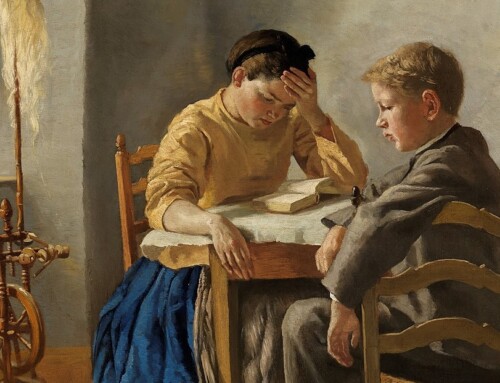On March 18, 2018, Out at St. Paul, the Catholic LGBT ministry located at St. Paul the Apostle Church in New York City, will host a presentation entitled “Countertraditions to Adam and Eve: Relationships in the O.T.” From Out at St. Paul:
Join us after the 5:15 pm Mass for a lively conversation with Karina Hogan, Associate Professor of Theology at Fordham University and an expert in ancient Judaism. In discussions of how the Old Testament views sexuality, the Garden of Eden story (Genesis 2-3) is often the first passage that comes up. While some feminist scholars have argued that this myth is not necessarily to be read as an endorsement of patriarchy, it is hard to read it as anything other than heteronormative. This presentation looks at other Old Testament texts that can be read as “countertraditions” that challenge the idea that heterosexual marriage is the only divinely sanctioned solution to the problem that “it is not good for the human to be alone” (Gen 2:18).
Karina Martin Hogan is also a faculty member of Fordham’s “Women, Gender, and Sexuality Studies.” The department funds the annual Fordham production of “The Vagina Monologues.” In 2014, Hogan offered her opinion to “The Observer,” the official student newspaper of Fordham University, concerning the firing of same-sex married individuals from Catholic institutions. According to the article:
…Hogan questions the general procreative arguments used by Catholics, and other religions, in regards to same-sex marriage.
“Does that mean that marriages that aren’t blessed with children, marriages that are infertile or people marrying when they are too old to have children or any other reason, does that make them any less valid as marriages if they marry in the Catholic Church?” she posited.
Hogan also pointed out that many gay couples marry because they want to have children, whether through adoption, surrogacy or other forms of procreation without the children being biological offspring of both parents.
“So I don’t think procreation works either way for defining marriage,” she said. “In fact, to get biblical for a minute,” Hogan continued, “the story in Genesis 2 that explains why people get married… doesn’t actually say anything about procreation.” Instead, Hogan clarified that Adam and Eve become one flesh, and while it “seems to be implying sex, it never says ‘and then they will have lots of babies.’”
In 2017, Hogan signed a “Statement by Feminist Scholars,” which declared, among other things, that: “We must protect reproductive justice…”
Also, in 2017, Out at St. Paul promoted an Atlanta theatrical production featuring “gay versions” of Bible stories.
Themes of “queer theology” have been incorporated into several Catholic LGBT ministries, namely at St. Paul the Apostle Church in New York City, St. Cecilia’s Rainbow Ministry in Boston and at St. Patrick – St. Anthony Church in Hartford, Connecticut; in addition, the well-know Jesuit James Martin, who is a frequent speaker at Out at St. Paul, has tacitly promoted certain aspects of “queer theology.”
Please contact:
Cardinal Timothy Dolan
Phone: 212-371-1000







This is the shallowest, flimsiest interpretation of a gay genesis these people could make. And if most feminists were serious about defending female interests, they would demand to make surrogacy illegal, as the embryo carrier is in a very vulnerable position usually. They don’t because plenty of rich old women want biological children, as well as the occasional gay couple like Elton John’s.
The truth is that human life is born from male and female as even the most “advanced” surrogacy experiments show, you always need male and female cells to make an embryo, as well a female uterus to carry it; you can’t get any more adam and eve than basic reproductive biology. To pretend otherwise is to erase a parent (or two in case of gay surrogacy, where egg donor and carrier are required not to be the same woman). Parents may not be perfect and sometimes they are terrible, but even so they are part of us; denying a child this knowledge is abuse. It is a really sad situation.